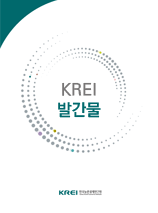- Measures to Establish the Water-Energy-Food Nexus for Agricultural Resource Management
-
-
The scarcity of water, energy and food resources and the instability of their supply and demand have increased the interdependence among different resources, and the uncertainty of individual resource management policies and their unintended effect have been generated, leading to a higher significance of the integrated management of resources.
– The rapid economic growth, the growing demand for biofuel, urbanization, globalization, and climate change since the 1950s have triggered the increase in resource consumption and undermined the stable supply and demand.
– The individual use of resources and the introduction of cost-effective technologies affect the supply and demand of other resources.
The water-energy-food nexus is a concept presented as a decision-making tool for the integrated resource management with context-specific features.
– The discussion over the water-energy-food (WEF) nexus has continued, while its accurate concept has not been defined yet.
– The components of the nexus, their correlations and external factors can differ depending on the purpose and target of research.
– Unlike traditional resource management methods, the nexus considers the correlations between different resources and helps sustainable management according to variable factors of each type of resource.
The importance of the WEF nexus is growing due to the changes in the domestic agricultural production structure, but the relevant discussion is still focused on the conceptual aspect. The resource-related policies have been established individually by each ministry and department, while there is also lack of data and consistency between materials, hindering the introduction of the nexus.
– Korea is short of studies of institutions that would implement policies based on the WEF nexus and changes in systems related to resource management.
– The data on domestic farm households lack the information on sustainability and agricultural resource management and lack time and spatial consistency.
To introduce the WEF nexus in the country, it is crucial to connect the biophysical model and the agricultural model, build a database through joint research between academic institutions and relevant organizations, and provide user-friendly information.
– Such efforts include the analysis of optimized distribution of limited resources by using the biophysical and economic models, the creation of a consistent and useful database through joint research, and the provision of analysis results that can be easily utilized by policymakers and stakeholders. -
목차
요약문
The scarcity of water, energy and food resources and the instability of their supply and demand have increased the interdependence among different resources, and the uncertainty of individual resource management policies and their unintended effect have been generated, leading to a higher significance of the integrated management of resources.
– The rapid economic growth, the growing demand for biofuel, urbanization, globalization, and climate change since the 1950s have triggered the increase in resource consumption and undermined the stable supply and demand.
– The individual use of resources and the introduction of cost-effective technologies affect the supply and demand of other resources.
The water-energy-food nexus is a concept presented as a decision-making tool for the integrated resource management with context-specific features.
– The discussion over the water-energy-food (WEF) nexus has continued, while its accurate concept has not been defined yet.
– The components of the nexus, their correlations and external factors can differ depending on the purpose and target of research.
– Unlike traditional resource management methods, the nexus considers the correlations between different resources and helps sustainable management according to variable factors of each type of resource.
The importance of the WEF nexus is growing due to the changes in the domestic agricultural production structure, but the relevant discussion is still focused on the conceptual aspect. The resource-related policies have been established individually by each ministry and department, while there is also lack of data and consistency between materials, hindering the introduction of the nexus.
– Korea is short of studies of institutions that would implement policies based on the WEF nexus and changes in systems related to resource management.
– The data on domestic farm households lack the information on sustainability and agricultural resource management and lack time and spatial consistency.
To introduce the WEF nexus in the country, it is crucial to connect the biophysical model and the agricultural model, build a database through joint research between academic institutions and relevant organizations, and provide user-friendly information.
– Such efforts include the analysis of optimized distribution of limited resources by using the biophysical and economic models, the creation of a consistent and useful database through joint research, and the provision of analysis results that can be easily utilized by policymakers and stakeholders.저자정보
저자에게 문의
구매안내
KREI의 출판물은 판매 대행사 (정부간행물판매센터)와 아래 서점에서 구입 하실 수 있습니다.
판매대행사
- (주)정부간행물판매센터http://www.gpcbooks.co.kr사이트 바로가기
- 서울특별시 중구태평로 1가 25번지
- TEL 02) 394-0337, 734-6818
- FAX 02) 394-0339
판매서점
판매서점 교보문고 http://www.kyobobook.co.kr/ 영풍문고 http://www.ypbooks.co.kr/ 알라딘 http://www.aladin.co.kr/ 활용도 정보
활용도 정보 상세정보 조회 좋아요 다운로드 스크랩 SNS공유 4134 0 14 0 0 -
- Suggestions to Promote the Hometown Love Donation System
- Gouk, Seungyong
- 2022.11.25
- KREI 이슈리포트
-
- Ten Years of Korea-U.S. FTA: focusing on agri-food trade
- Kim, Kyungphil
- 2022.06.09
- KREI 이슈리포트
-
- Impacts of Ukraine-Russia Conflict on Global Grain Prices
- Kim, Jongjin
- 2022.03.31
- KREI 이슈리포트
-
- The Impacts of the COVID-19 on the Korean Agricultural Market
- Seo, Hong-Seok
- 2020.06.05
- KREI 이슈리포트
-
- 10 Agricultural Policy Issues of Korea in 2019
- Jeong, Minkook
- 2019.01.29
- KREI 이슈리포트
-
- State of Korean and Overseas Markets for Environment-Friendly Agricultural Products and Challenges 2018
- Jeong, Hakkyun; Sung, Jaehoon; Lee, Hyeonjeong
- 2018.09.12
- KREI 이슈리포트
-
- Changes in the Trade of Agricultural and Livestock Products and Implications after Seven Years from the Enforcement of the Korea-EU FTA
- Song, Woojin; Lee, Hyunkeun; Myeong, Suhwan; Yoo, Juyoung
- 2018.06.29
- KREI 이슈리포트
-
- 10 Agricultural Policy Issues of Korea in 2018
- Kim, Byoungryul
- 2018.01.22
- KREI 이슈리포트
-
- Income Changes by Type of Farm Household and Implications
- Woo, Byungjoon
- 2017.11.30
- KREI 이슈리포트
-
- Fact-checking of Unbalanced Korea-U.S. Trade and Countermeasures in the Agricultural Sector
- Lee, Hyunkeun; Myeong, Suhwan; Lim, Chehwan; Song, Woojin
- 2017.10.17
- KREI 이슈리포트
-
- 10 Agricultural Policy Issues of Korea in 2019
- Jeong, Minkook
- 2019.01.29
- KREI 이슈리포트
-
- Income Changes by Type of Farm Household and Implications
- Woo, Byungjoon
- 2017.11.30
- KREI 이슈리포트
-
- 10 Agricultural Policy Issues of Korea in 2018
- Kim, Byoungryul
- 2018.01.22
- KREI 이슈리포트
-
- Job Creation Potential for the Youth and Challenges in the Agricultural Industry
- Ma, Sangjin
- 2017.01.01
- KREI 이슈리포트
-
- Implementation Plan and Implications of International Development Cooperation Projects for Agriculture in 2017
- Heo, Jang
- 2017.04.28
- KREI 이슈리포트
-
- 2016 Production Status and Market Prospect of Eco-Friendly Agricultural Products at Home and Abroad
- Jeong, Hakkyun; Lee, Hyejin; Kim, Changgil
- 2016.11.30
- KREI 이슈리포트
-
- The Impacts of the COVID-19 on the Korean Agricultural Market
- Seo, Hong-Seok
- 2020.06.05
- KREI 이슈리포트
-
- Global Spread of Saemaul Undong for Rural Development in Developing Countries
- Heo, Jang; Lee, Yoonjung
- 2016.11.30
- KREI 이슈리포트
-
- Goals and Strategies to Reduce Greenhouse Gas Emissions in the Agriculture Sector
- Jeong, Hakkyun; Kim, Changgil
- 2015.11.03
- KREI 이슈리포트
-
- 70 Years' Achievements and New Challenges of Korean Agriculture and Rural Communities
- Song, Miryung; Moon, Hanpil; Kim, Meebok; Seong, Jooin; Lim, Jieun
- 2015.09.15
- KREI 이슈리포트
의견남기기



